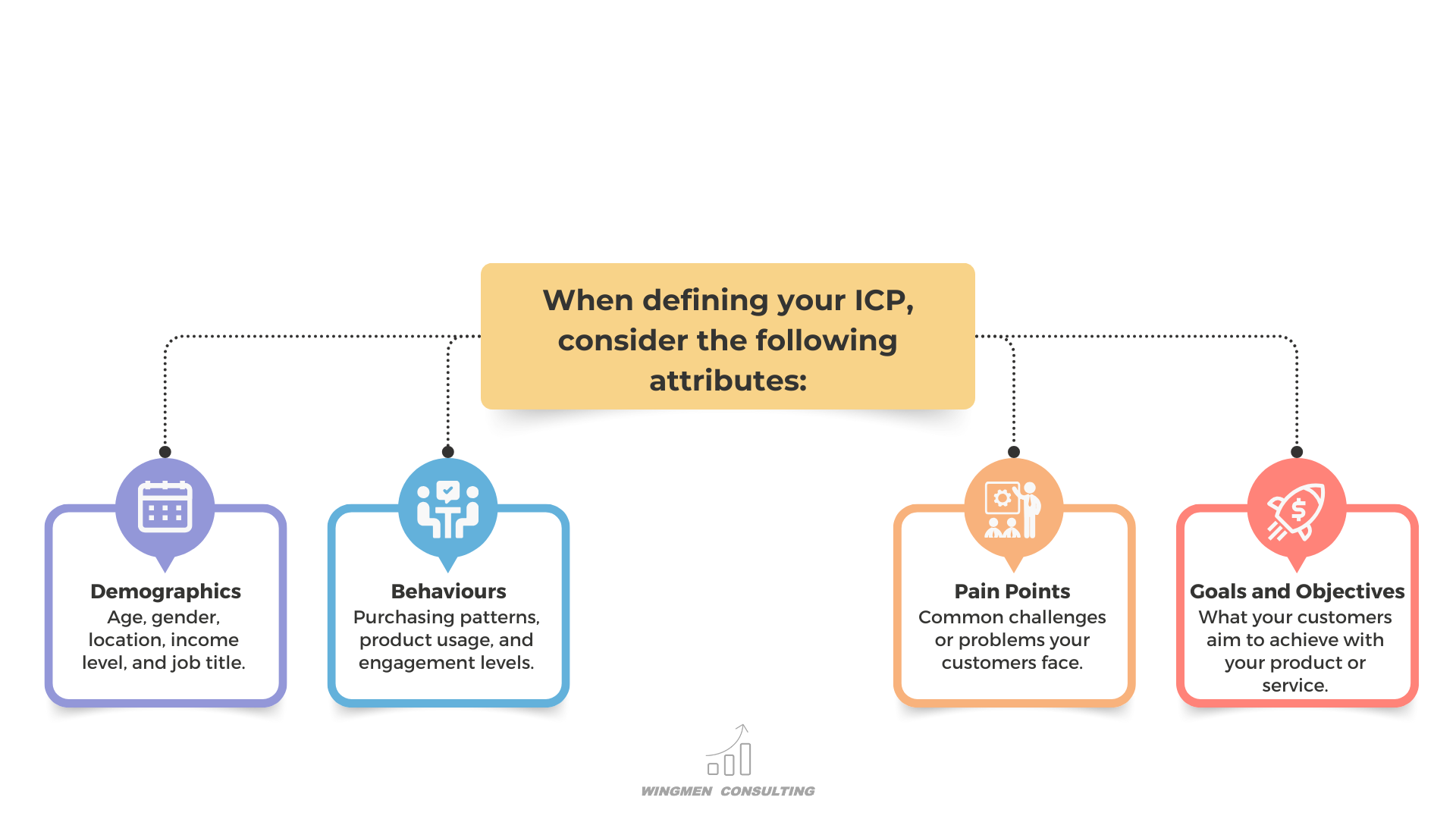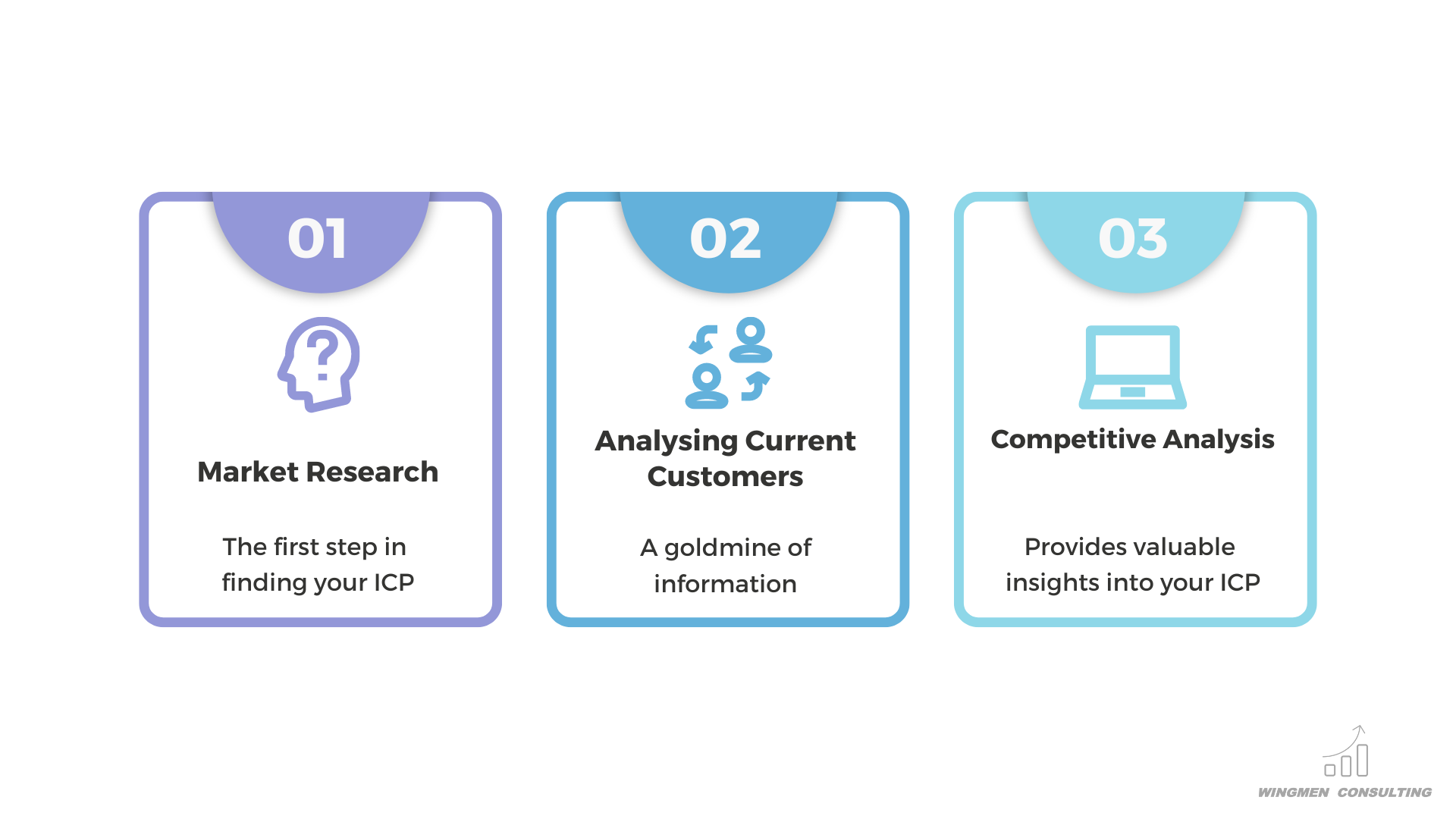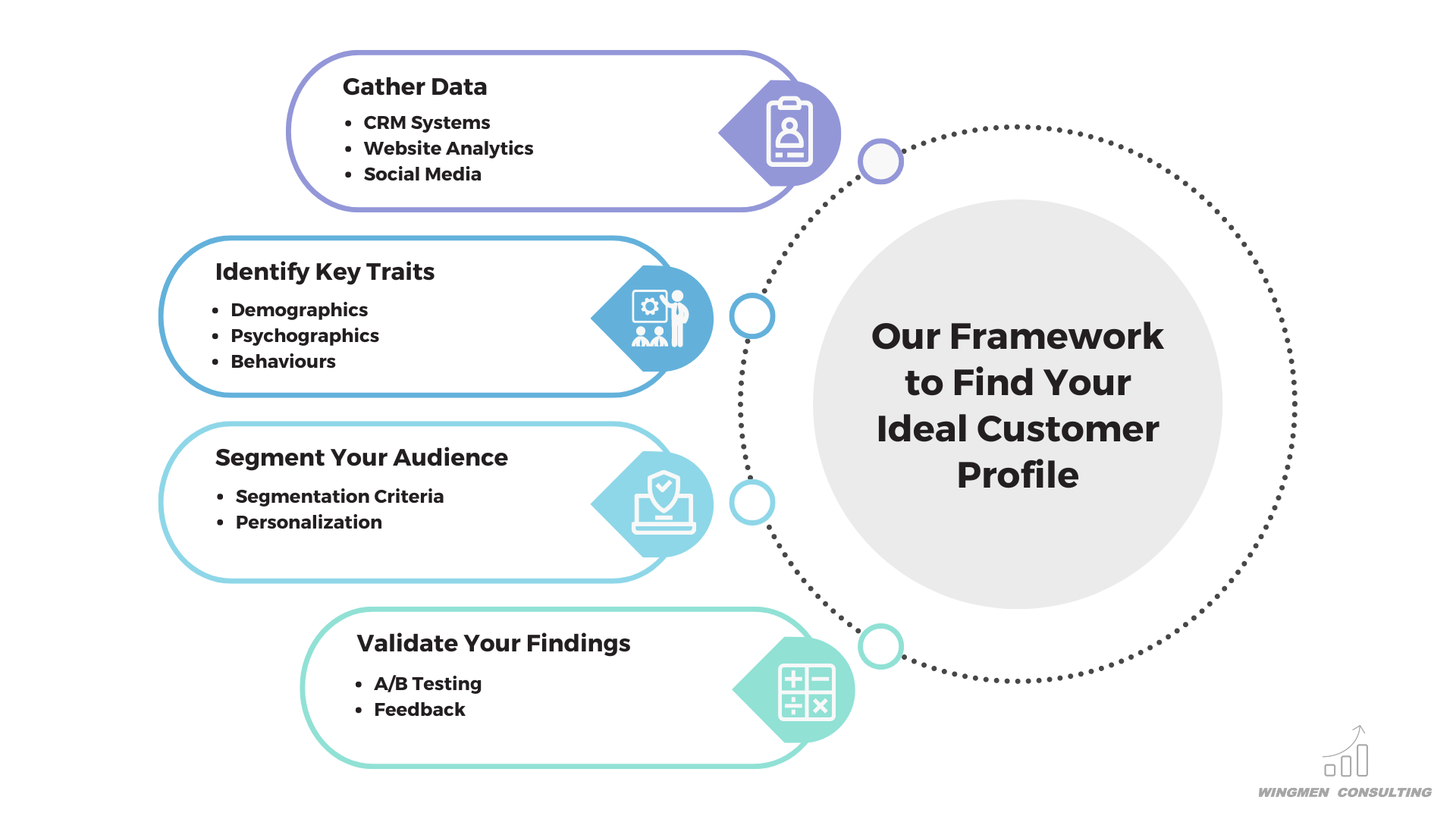Develop Your Ideal Customer Profile with a Proven Framework
Creating an ideal customer profile (ICP) is a fundamental step in tailoring your marketing and sales efforts to the right audience. An ICP helps you understand who your best customers are, what they need, and how you can serve them better. In this blog post, we’ll delve into what an ideal customer profile is, how to find yours, and provide a detailed framework to help you create your own. Plus, we’ll offer some handy customer profile templates to get you started.
What is an Ideal Customer Profile?
An Ideal Customer Profile (ICP) is a detailed description of the type of customer that would benefit the most from your product or service and provide the most value to your business. This profile includes demographic information, behaviour patterns, pain points, and other characteristics that help identify and target your best customers.
Definition and Importance
An ICP is crucial for several reasons. It helps align your marketing, sales, and product development efforts, ensuring you’re targeting the right audience with the right message. With a well-defined ICP, you can:
- Increase customer satisfaction by tailoring your offerings to meet their needs.
- Improve marketing efficiency by focusing resources on high-potential customers.
- Enhance sales strategies by understanding customer behaviour and decision-making processes.
Key Characteristics

For example, an ideal customer for a B2B software company might be a mid-sized business in the tech industry with a need for scalable solutions to manage remote teams.
How to Find Your Ideal Customer Profile
Identifying your ICP involves thorough research and analysis. Here are some steps to guide you through the process:
Market Research
Conducting market research is the first step in finding your ICP. This involves gathering data from various sources to understand market trends and customer behaviours.
- Surveys and Interviews: Collect feedback directly from potential and existing customers.
- Analytics: Use website analytics, social media insights, and sales data to identify patterns and trends.
- Industry Reports: Study reports and publications related to your industry to stay updated on market dynamics.
Analysing Current Customers
Your existing customer base is a goldmine of information. Analyse your top-performing customers to identify common characteristics and behaviors.
- Identify Top Performers: Look at customers who generate the most revenue or show high engagement with your product.
- Understand Characteristics: Examine their demographics, behaviours, and feedback to find common traits.
Competitive Analysis
Studying your competitors can provide valuable insights into your ICP.
- Customer Base: Analyse the customer base of your competitors to see who they are targeting.
- Successes and Failures: Learn from your competitors’ successes and failures to refine your approach.

Our Framework to Find Your Ideal Customer Profile
Here’s a step-by-step guide to creating your ICP:
Step 1: Gather Data
Collect data from various sources to build a comprehensive picture of your customers.
CRM Systems
Use Customer Relationship Management systems to gather detailed customer information.
Website Analytics
Track visitor behaviour on your website to understand their interests and needs.
Social Media
Analyse social media interactions to gauge customer sentiment and preferences.
Step 2: Identify Key Traits
Identify the key traits that define your ideal customers.
Demographics
Age, gender, location, job title, and income level.
Psychographics
Interests, values, attitudes, and lifestyle.
Behaviours
Buying habits, product usage, and brand loyalty.
Step 3: Segment Your Audience
Create customer segments based on the identified traits.
Segmentation Criteria: Use criteria such as industry, company size, and customer needs to segment your audience.
Personalization: Tailor your marketing messages to each segment for better engagement.
Step 4: Validate Your Findings
Test your customer segments with targeted marketing campaigns to validate your ICP.
A/B Testing: Use A/B testing to compare the effectiveness of different marketing messages and strategies
Feedback: Collect feedback from customers to refine your ICP further.
Tools and Resources
Several tools can help you in data collection and analysis:
- Google Analytics: For tracking website traffic and user behavior.
- CRM: For managing customer relationships and data.
- SurveyMonkey: For conducting surveys and gathering feedback.
Additionally, using an ideal customer profile worksheet can help you organize your findings and ensure consistency. These worksheets typically include fields for demographic information, behaviors, pain points, and more.

Customer Profile Templates
Using customer profile templates can streamline the process of creating your ICP. Here’s how to use them effectively:
Overview of templates
Customer profile templates are essential for maintaining consistency and ensuring all necessary information is captured.
- Consistency: Templates ensure that all relevant data is collected uniformly.
- Efficiency: Save time by using pre-designed formats that only require filling in the blanks.
Example templates
Here’s an example of a filled-out ICP template for a B2B software company:
- Company Name: XYZ Tech Solutions
- Industry: Technology
- Company Size: 100-500 employees
- Location: United States
- Pain Points: Managing remote teams, scaling operations
- Goals: Improve team collaboration, increase productivity
Customising templates
Tailor these templates to fit your business needs:
- Adjust Fields: Modify fields to capture specific information relevant to your business.
- Add Details: Include additional sections for specific attributes unique to your industry.
Where to find templates
Several resources offer downloadable ICP templates:
- HubSpot: Provides a variety of marketing and sales templates.
- Breadcrumbs: Offers templates specifically for customer profiling.
- Qualtrics: Has templates focused on customer experience and feedback.
Recommendations for further reading and tools
- Books: “Buyer Personas” by Adele Revella for in-depth insights into customer profiling.
- Online Courses: LinkedIn Learning and Coursera offer courses on market research and customer profiling.
Creating an ideal customer profile is not a one-time task but an ongoing process that evolves as your business grows and market conditions change.
